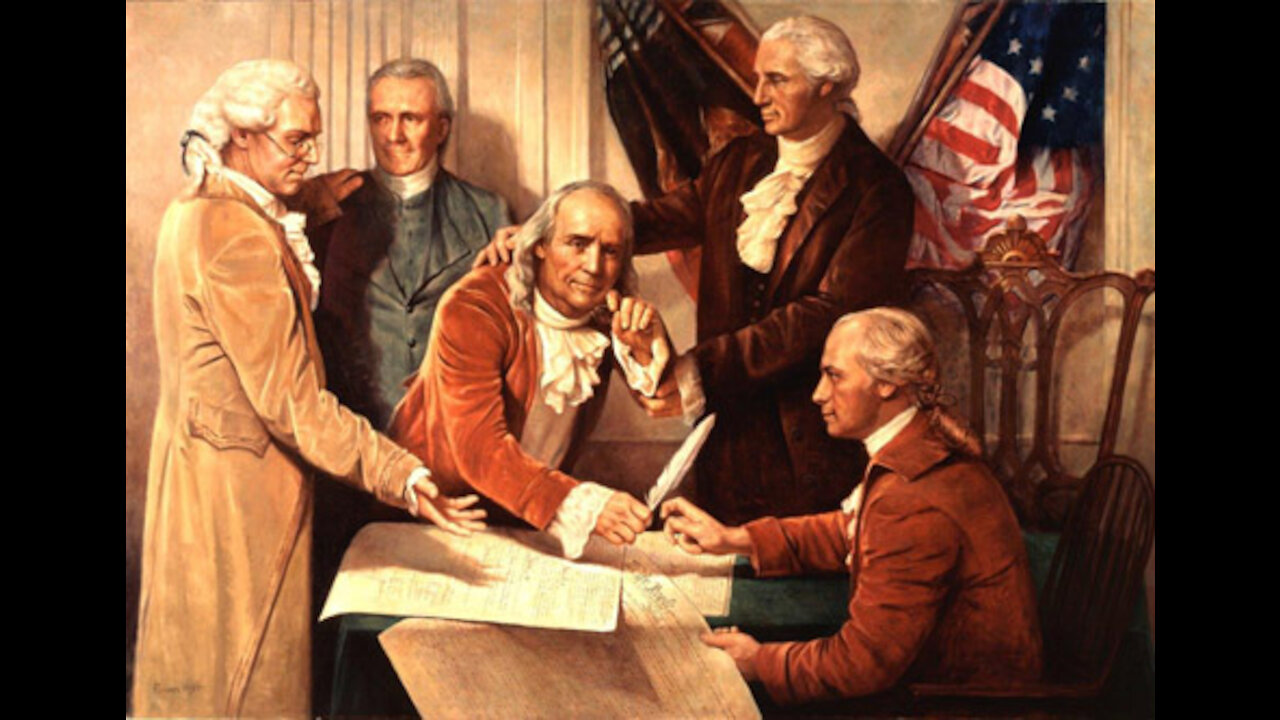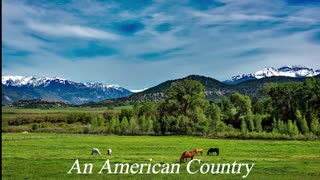Premium Only Content

"Our American Republic"
While today we marvel at the extraordinary accomplishment of our Founding Fathers, their own reaction to the US Constitution when it was presented to them for their signatures was considerably less enthusiastic. Benjamin Franklin, ever the optimist even at the age of 81, gave what was for him a remarkably restrained assessment in his final speech before the Constitutional Convention: "…when you assemble a number of men to have the advantage of their joint wisdom, you inevitably assemble with those men, all their prejudices, their passions, their errors of opinion, their local interests, and their selfish views." He thought it impossible to expect a "perfect production" from such a gathering, but he believed that the Constitution they had just drafted, "with all its faults," was better than any alternative that was likely to emerge...
The conditions that threaten to undermine our sense of nationhood, bound up in the debate over slavery and manifested in intense sectional conflict during the pre-Civil War era, are today both more complex and diffuse. Some of today's conditions are part of the tragic legacy of slavery--a racial climate marked too often by mutual mistrust and misunderstanding and a condition of desperate poverty within our inner cities that has left many young people so alienated that any standard definition of citizenship becomes meaningless. More commonly, but in the long run perhaps just as alarming, tens of millions of Americans have been turned-off by the corrupting effects of money on the political system. Bombarded with negative advertising about their candidates, they express their feelings of alienation by staying home on election day.
If there is a lesson in all of this it is that our Constitution is neither a self-actuating nor a self-correcting document. It requires the constant attention and devotion of all citizens. There is a story, often told, that upon exiting the Constitutional Convention Benjamin Franklin was approached by a group of citizens asking what sort of government the delegates had created. His answer was: "A republic, if you can keep it." The brevity of that response should not cause us to under-value its essential meaning: democratic republics are not merely founded upon the consent of the people, they are also absolutely dependent upon the active and informed involvement of the people for their continued good health.
-
 4:33
4:33
Genoblaste
4 years agoAmerican Crate 2
99 -
 0:30
0:30
FreeSpeech314
4 years agoAmerican hero’s
192 -
 3:35
3:35
HudsonBill
4 years agoAmerican Country
134 -
 1:00
1:00
The Riley and Kimmy Show
4 years agoSnoring American Bulldog
73 -
 13:22
13:22
FamilyFriendlyGaming
4 years agoAmerican Chopper
92 -
 1:11
1:11
jamesewing2020
4 years ago $0.04 earnedamerican truck simulator
171 -
 1:00
1:00
SurfDigitalStudio
4 years agoAmerican Made...
218 -
 0:29
0:29
Aquariums and Vivariums - A Collection
4 years agoCentral American Vivarium
231 -
 0:04
0:04
Joemunk89
4 years ago $0.15 earnedAmerican cartwheel
5071 -
 0:10
0:10
matteverly67
4 years ago $0.15 earnedAmerican Patriot
1.22K1